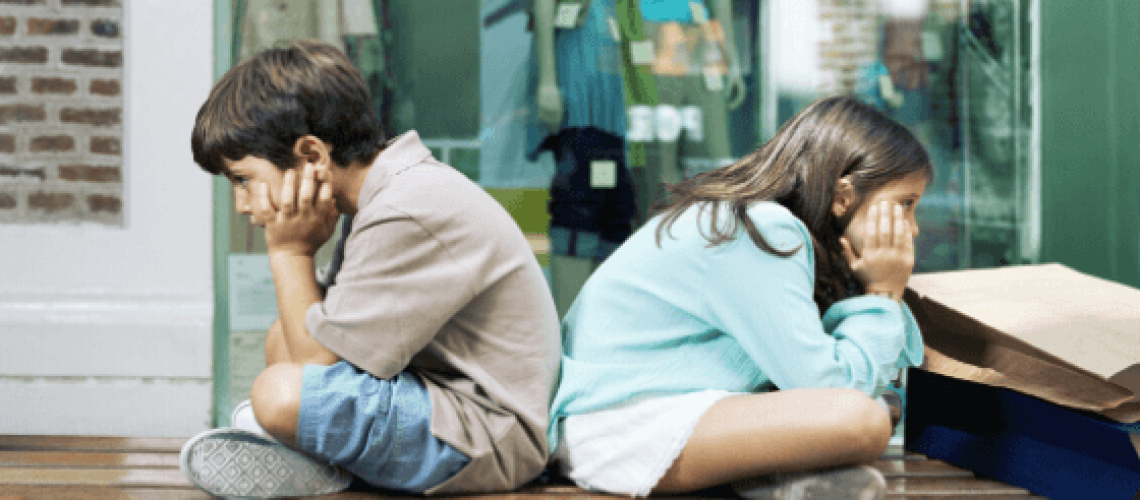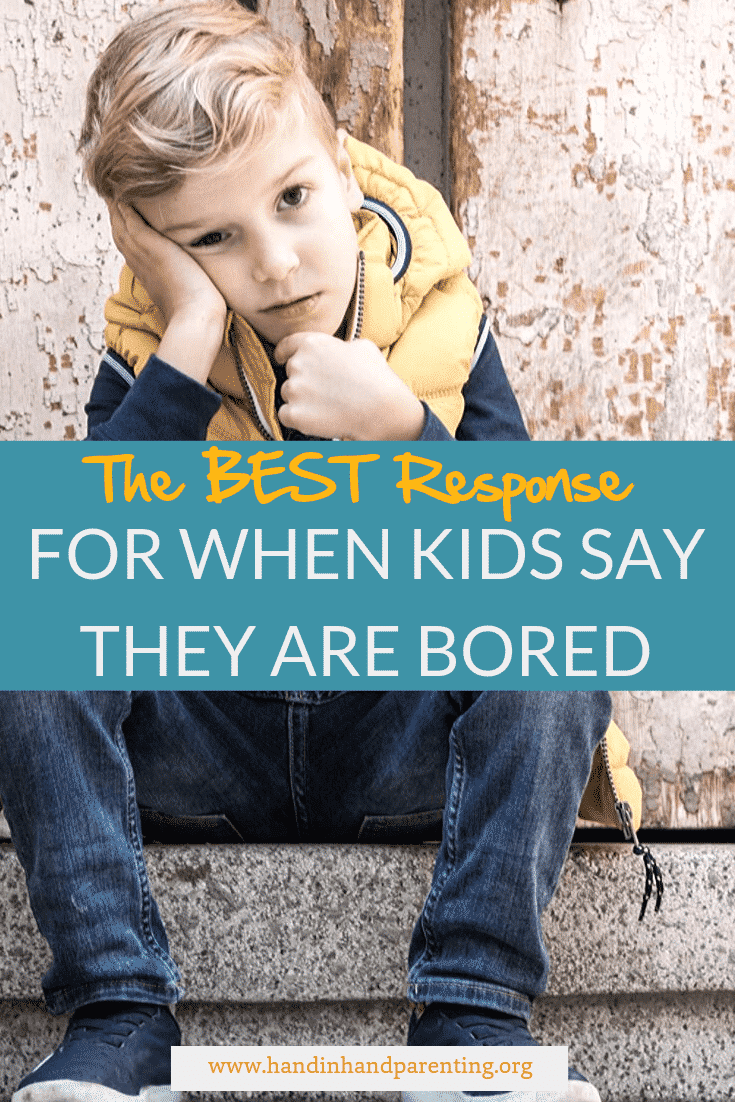Inside: What things can you do when a child says they are bored?
We've all been there. In the middle of a holiday or a weekend or a long, rainy day and your child says “I'm bored.”
What???
Of course some days you'll be in that awesome groove where you have all bases covered. You planned the best list of backup plans. (If you love a good detective game, try this). Or a fun and entertaining idea pops into your mind and you speedily pivot your child to it, to their delight.
But on other days?
Wah!
The tag on your shirt suddenly seems itchy and hot.
Your irritation grows as you stuff baked goods into your mouth, thinking “Why now?”
“Why now???”
Should You Let Your Child Be Bored?
Most of us feel an intense desire to either send our kids off to “entertain themselves,” or fix this boredom when a child complains. And while we are big proponents of leaning into boredom—because feeling bored is a symptom of a child feeling disconnected. You can read more about that here
But sometimes, a quick game or a playful response is all a bored child needs to lift away from their gloom.
Try This When Your Kid Says “I'm Bored”
Like how mom and Hand in Hand certification candidate Mihaela Plugarasu did with her son, one long, rainy day. Here's how she tells it.
“Last week, it was a rainy afternoon here in Miami. My son and I came back from camp, ate and then just as we were chilling down doing nothing when he asked if he could watch a movie.
We'd watched two movies together the previous afternoon and evening because it had been raining heavily.
As fun as the movies were, and as much as I'd enjoyed the experience of laughing and sharing together, I felt our connection was not fully there.
So, I said, “Remember we watched two movies last night? Our brains would love a little break from that. We'll watch another movie tomorrow, I promise.”
He said, “What do we do now? I'm bored!“
Why Do Kids Have to Be Entertained All the Time Anyway?
In my mind, I was thinking, “The famous “I'm bored.” OMG! Kids today have TO DO something all the time. What happened to doing nothing?”
But I also knew better than that. I knew his “I'm bored” actually meant, “I feel disconnected”.
My initial gut feeling had been accurate.
I kept my thoughts to myself, but I was feeling a bit worried that I wouldn’t come up with a connecting and “acceptable” idea for my bored 7-year-old.
Sometimes it helps kids to lean into their boredom. Use this chart to learn how: 9 Steps to Beat Boredom With Connection
Then this happened…
Playfulness is not a natural skill for me. I have to really work at it, but out of the blue, I felt inspired to try play.
I started ‘acting”, saying, “This is what I do when I am bored!”
Then, I jumped in the middle of the living room and started dancing the “floss,” that dance move that all the kids, including my son, have mastered.
But not me!!!
Of course, I made a fool of myself and he started laughing. He said: “That’s not how you do it mommy! This is how you do it! “ and he showed me, looking all proud of himself.
I Was Actually Onto Something
I was happy! I was actually onto something, so I continued…
“This is what I do when I am bored!” I said, trying another dance move that I failed to perform.
Again, he showed me how to do it.
“This is what I do when I am bored!” I said, pretending that I was cooking—not my strength either.
He jumped into the game, saying, “This is what I do when I am bored!” (I had to guess what he was doing) and after that, we took turns at “showing “ and guessing what we do.
He even increased it's the difficulty, by trying to “trick” me. He went super-fast at taking his turn, so I couldn't think what to show next in our game.
We went on like this for about 25 minutes, then moved to boxing and pillow-fighting.
Goodbye, Boredom! That Game Changed Everything
I was SOOOO happy that I took a chance at playing. We were both exhausted. He was very pleased with winning over me again and again.
We both had a snack and went to bed. I read him a story. Our doomed to be “boring “ evening had been nothing short of fun and connecting.
You'll Never Guess Why Play Busted Boredom Away…
Hand in Hand calls this playful way of responding “Playlistening,” because you are listening to your child's signals and responding playfully. And you probably wouldn't guess that it works because it responds directly to your child's brain's need to feel connected.
When you are harsh in response to a whine or a complaint like boredom, your child's brain goes into a kind of shutdown mode. That's why so often our well-intended words are received as “blah, blah, blah…”
Ooops.
When you respond with humor, you actually send your child feelgood vibes that calm their upset (and the upset causing them to say “I'm bored.”)
As you read about in Would you respond like this when your child says “I'm bored?” play doesn't always have to be loud or boisterous to bust away boredom. But it does reduce yelling, stand-offs, and defiance because it works with your child's desire to be close to you.
Can I Use Playlistening With Other Behavior Challenges?
Sure can! There's a good reason why they say “play is a child's language.” It works with them rather than against them.
Here's how it can work with a few different challenges you might have:
Behavior Challenge: Whining
Playlistening response: Say, “Oh, these whingy-whiny bugs are everywhere! I need to get them off of you!” and then pretend to pick them off or kiss them off or wave them off with a magic wand.
Behavior Challenge: Scared to use the potty
Playlistening response: Grab a favorite soft toy and have it act all angry and mad and tip over the potty and complain about how yucky that potty is.
Behavior Challenge: Child says they “Just can't” do what you ask.
Playlistening response: Move in slow motion, saying, “Oh no, I'll never tidy those toys / pick up that bag / get to the bathroom,” before you.
Behavior Challenge: Your child doesn't want to walk.
Playlistening response: Have your legs suddenly walk backwards, or sideways, or in zig-zags and then tell your child, ”Oh dear! My legs have started going all wrong. Can you help me?” They'll enjoy being in the more powerful role as they sort your silly legs out.
Why Power Reversal Matters in Play
That last point is one that can make all the difference.
When YOU act silly, when you are the weak one, when you bumble, or trip, or can't tie your shoes, when you hold your nose and close your eyes and hate the taste of broccoli, or when YOU act bored it takes the sting out of the frustration, the worry, and the disconnection upsetting your child.
We won't say play is a magic wand for making things better, but it is pretty magical what play can do. (In fact, if your child gets super upset after you make a few attempts at play, you should read this post).
So the next time your child says, “I'm bored,” lean in. Be bored too. You'll soon be laughing together.
Got Questions About Your Child's Behavior?
Come get them answered. Our instructors can't wait to meet you.




